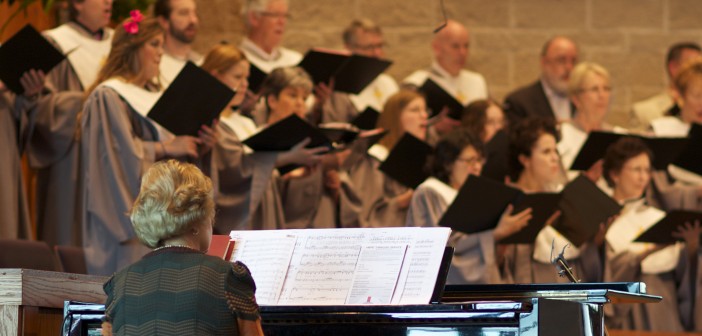In all of the churches where I have worshiped and worked, the core ministry team is the same — the pastor and the musicians — although some never think of this relationship as a team. It is one of the most significant staff relationships in the church and one of the most critical components in any church’s realization of its mission and ministry.
Although clergy and musicians must work together as the principal leaders and designers of worship, they often have different perspectives on the worship experience. As a consequence, they are the church staff members most likely to be in conflict. All too often, one hears of un-collegial, unhealthy, and sometimes even abusive relationships between clergy and musicians. And things can become even more tense in this era of diminishing resources and seismic shifts in worship styles.
The fact of the matter is that musicians can be elitist, controlling, difficult, demanding, and uncompromising. Clergy also can be elitist, controlling, difficult, demanding, and uncompromising. So how then can clergy and musicians function as a team, rather than rivals? How can clergy and musicians better understand one another and work more effectively together?
Develop an understanding of roles. When musicians and clergy begin working together, one of their first conversations should concern the relationship the clergy wants with the musician. While it may take time to work out the most effective approach, and that may change as they learn to trust each other more fully, clarifying the relationship from the start leads to a solid foundation upon which to build a team.
Developing a collaborative, trusting relationship between clergy and musician is essential to creating meaningful worship and maximizing a congregation’s ministry.
Show concern for each other’s area of ministry. It is discouraging to work with individuals who think theirs is the only program in the church that really matters, and that it is all about them. Therefore, clergy and musicians need to show genuine concern for each other’s area of ministry.
Work toward a common understanding of the role of music in worship. Clergy and musicians will need to share their views of the role of music in liturgy. How do each of you experience music as supporting and enhancing the other elements of the service? Effective church musicians have a cogent, spiritually-grounded, and thoughtfully articulated theology of music’s role in church, particularly in worship. Clergy must also be clear about how God speaks through music.
Learn to appreciate each other’s discipline. A solid clergy-musician team is best based on a certain amount of knowledge of each other’s discipline. Musicians need to understand theological and liturgical language, have a basic grasp of church history and the Bible, and know what it takes to write a sermon. Clergy need to have an acquaintance with music, knowledge of sacred music repertoire, and an idea of what it takes to play with hands and feet at the same time. Both professionals need to develop an appreciation for the years it took to develop their particular skills.
Meet regularly. With busy part-time employees or volunteers, staff meetings are often overlooked or are set aside because of other interests and goals. Whether the meetings are weekly, monthly, or even quarterly, clergy and musicians need to meet to plan worship. This “face time” provides the opportunity to be together in the same room and look one another in the eye. Relationships are simply harder to build and maintain without the opportunity to meet in person.
Evaluate worship. The clergy-musician partners need to know what each other values. Without clear feedback from each other, they cannot recognize how their differing priorities affect the worship experience. Therefore, the staff most involved in worship should regularly review the previous week’s services in a staff meeting or with a worship planning team. What went well? What went awry? What was particularly effective? A calm, respectful approach is needed, even when things haven’t gone well.
Address problems. In a healthy environment, staff members agree to speak directly with each other when a problem arises — not complain to another colleague, a choir member, or a member of the congregation.
Developing a collaborative, trusting relationship between clergy and musician is essential to creating meaningful worship and maximizing a congregation’s ministry.
Related Resources:
- Creating Spiritual Accountability Systems by Sue Nilson Kibbeye
- A Win-Win Worship Debate by J. Stanley Justice






